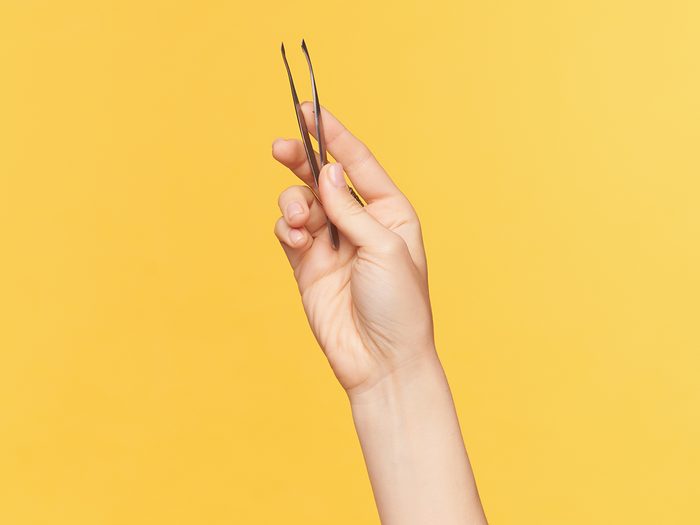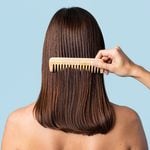What You Need To Know Before Pulling Out Grey Hairs

Is it doing more harm than good?
Maybe you’re tempted to pull out the grey hairs (especially your first few) you find, but is that really a good idea?
“OMG! I need to know about this!” a colleague emailed me when she heard I was looking into this question. She has gorgeous long brown hair, which she colours. She tells me she pulls out greys between dye jobs, but had heard that those hairs won’t grow back, or that plucking one would cause more to take its place.
“I see women all the time in my salon who have this habit,” says Montreal-based hairdresser Alain Larivée, Canadian creative consultant for John Frieda. That includes women who have never coloured their hair and are starting to see grey, and those who see greys grow in between colouring jobs.
(Related: 7 Sneaky Reasons Your Hair May Be Turning Grey)
Keep this in mind the next time you go to pull out grey hairs
The hair will generally grow back, but it will still be grey, says Toronto dermatologist Dr. Martie Gidon. “Grey hair already has a coarser texture than naturally pigmented hair, and it will grow back as coarse as before it was pulled.”
Hairdresser Marc Anthony, whose eponymous line of hair care products is sold in drugstores worldwide, says if you see a white bulb at the plucked hair’s root, that’s normal. However, “if you pull a hair out and its root tip is red, you’ve probably pulled out a hair from the blood supply, in which case it will most likely not grow back.”
Gidon says it’s also possible a new “replacement” hair can become ingrown before it grows out, which could lead to the possibility of infection, then scarring.
If I pull out grey hairs, will more grow in their place?
“That won’t happen, but it is better to leave it be,” says Anthony. “There are so many options for grey hair these days—including just leaving it grey.”
Why not leave your grey strands alone?
If you do that, focus on giving hair shine, and consider a clear gloss salon treatment, suggests Anthony.
Also, a shampoo that’s blue-based (for grey hair) or violet-based (for blonde, white or grey) will help keep your hair looking brilliant versus dull and yellowish, he says.
“Tobacco smoke, sunlight and wax-based hair products can give grey hair a yellow tinge, so try to avoid them.” If you want to cover the first signs of grey, he suggests a semi-permanent rinse, or highlights: “A few highlights that complement your natural colour can work to camouflage grey.”
Don’t want to embrace the grey hair? Load on some colour
“Book your colour service on a regular interval that you are able to live with,” says Larivée, who owns the CAJH Maîtres Coiffeurs salon in Montreal. “I usually say every four to six weeks.”
For those who colour their hair at home, Larivée recommends permanent dye John Frieda Precision Foam Colour. “It’s easy to use and covers pesky grey hairs. The non-drip foam formula gives full coverage and helps avoid a mess.”




